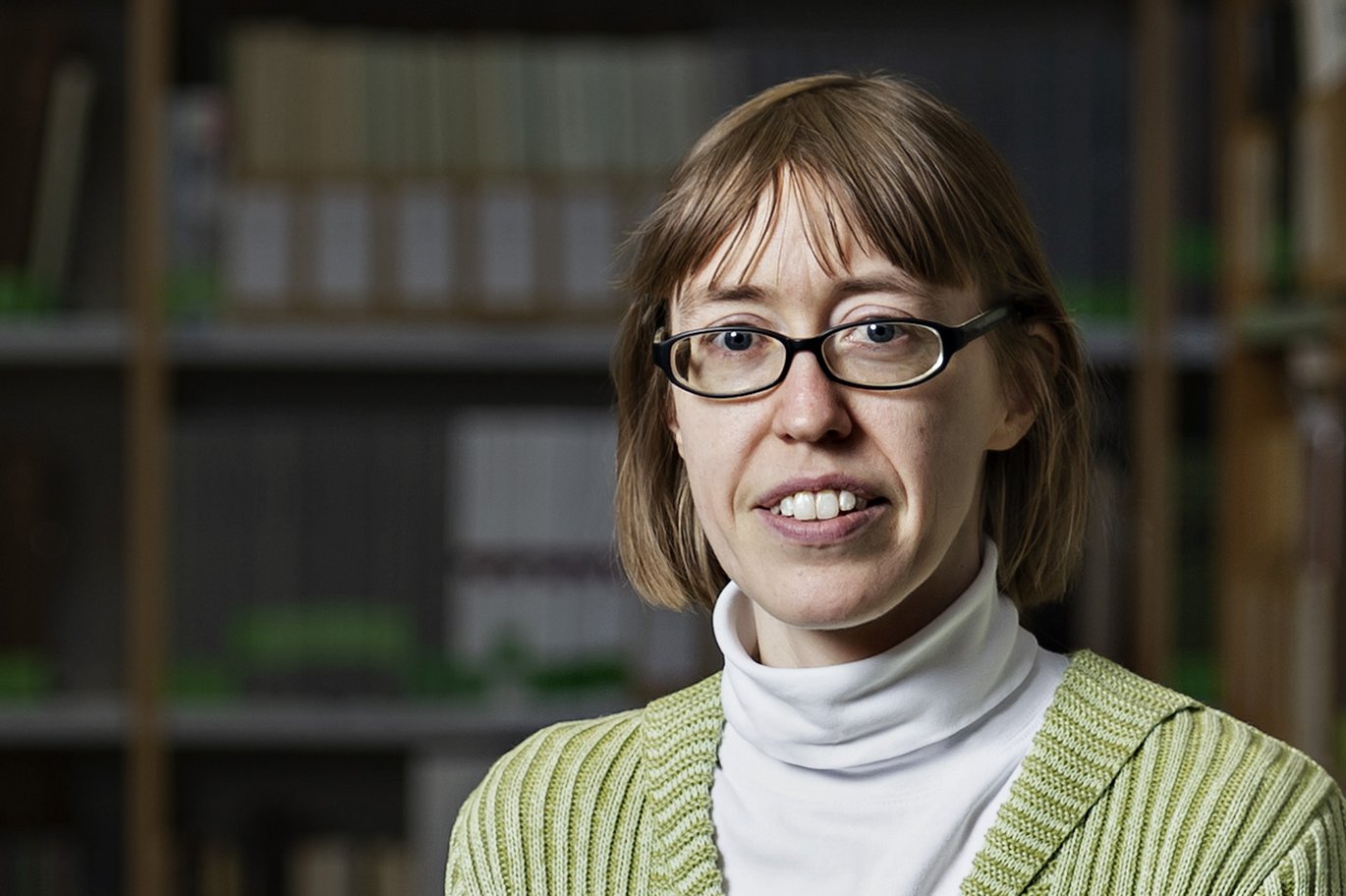Heather Anne Swanson appointed AU Distinguished Senior Innovator
Aarhus University has appointed Professor Heather Anne Swanson as AU Distinguished Senior Innovator (DSI). Heather Anne Swanson, professor of anthropology and head of the Centre for Environmental Humanities, has through her work distinguished herself as a central figure in the environmental humanities. As DSI, she will strengthen the integration of humanities research in the green transition and promote collaborations between both academic and external partners.

The Centre for Environmental Humanities (CEH) is a place where ideas and visions meet. This is where Heather Anne Swanson works. She is a professor of anthropology and head of CEH, where she uses her background as an anthropologist to analyze how cultural and social factors influence our understanding of and response to various environmental problems.
As head of CEH, Heather Anne Swanson has been successful in positioning the centre as an international player in the field of environmental humanities. She works to integrate humanities research into debates about sustainability and promote solutions that unite environmental and human perspectives. According to the centre director, the humanities have a crucial role to play in tackling climate change and social inequality, which are often intertwined with multiple environmental challenges.
Green research, as she describes it, should therefore not only concentrate on natural science or economic research, but should also feature interdisciplinary initiatives where humanities research can contribute to developing stronger solutions to environmental issues.
"As a society, we cannot afford to fail to use all the resources we have in science," says Heather Anne Swanson, who points to another important point in relation to the green transition: that borders, both scientific and geographical, are need to be crossed in order to address environmental problems. Just as climate problems cross borders, research needs to do the same, she says.
Humanistic perspectives in green transition research
With her appointment as DSI, Heather Anne Swanson will now have the opportunity to promote the development and inclusion of humanistic perspectives in green transition initiatives.
"Since I was a PhD student, I have been fortunate to be part of the academic debates that have established environmental humanities as a lively field of research. In the new position, I would like to show how new insights and ideas from the environmental humanities can contribute to mission-oriented green initiatives," she says, while elaborating:
"A DSI position also means a lot to CEH, because it sheds light on what environmental humanities are and how the field can contribute in many different ways. I also hope that my position can benefit the many researchers at the Faculty of Arts who are already engaged in sustainability research and those, especially young researchers, who are creating new green projects. I expect that the position will lift our capacity to facilitate and participate in interdisciplinary collaborations."
Promoting innovative approaches to the green transition
Heather Anne Swanson describes her vision for CEH as one that promotes innovative approaches to the green transition.
"It's not enough to focus on technological innovation; We also need to develop new social practices and models for collaboration. By engaging researchers, institutions, and civil society, we can create solutions that are both sustainable and relevant to the people they affect," says Heather Anne Swanson, who will officially take up the position as DSI on 1 January 2025.
For the first six months, the newly appointed DSI plans to prioritize relationship building with existing and new partners, including interdisciplinary researchers, municipalities, companies, and NGOs.
"It is important for me to have face-to-face meetings because human relationships are so fundamental to the green transition, which requires both new and stronger collaborations and social innovation," she explains.
Heather Anne Swanson will also develop a strategic plan for innovation in the environmental humanities, which focuses on impact beyond the walls of the university.
"My goal is to ensure that we focus on both academic findings and concrete solutions that can make a difference in society," she says.
New teaching methods that foster creative thinking and innovation
Heather Anne Swanson has already taken steps to implement new teaching methods that foster creative thinking and innovation among students. Through courses such as "Environmental Humanities: Arts of Living on a Damaged Planet" and "Sustainability as a Way of Life", she inspires future generations to actively engage in society.
In this way, Heather Anne Swanson also sees opportunities to create inclusive approaches to the green transition.
"Even though we face major problems such as climate change and biodiversity loss, there is still a lot we can do – and there is a lot we can do better together. It is at the intersection of research, practice and society that we can find solutions that are both sustainable and relevant," she explains.
Facts about AU Distinguished Senior Innovator
AU Distinguished Senior Innovator (DSI) is a brand-new position created by the Aarhus University Board to strengthen innovation culture across Aarhus University. Each faculty has appointed one DSI, who will have the opportunity to dedicate their time to a combination of research and innovation for a period of three years.
As an AU Distinguished Senior Innovator, you must:
- advising and supporting projects that can create a positive change in relation to promoting the innovation and entrepreneurship agenda at the faculty.
- be an ambassador for academic entrepreneurship, where you conduct research at your department and at the same time conduct academic entrepreneurship based on The Kitchen.
- be involved in developing a number of different business ideas or innovative solutions in collaboration with colleagues in the field with the aim of strengthening the innovation culture broadly.
Contact
Heather Anne Swanson, Professor
Centre for Environmental Humanities
School of Culture and Society
Aarhus University
Mail: ikshswanson@cas.au.dk
Mobile: +45 2014 5994
